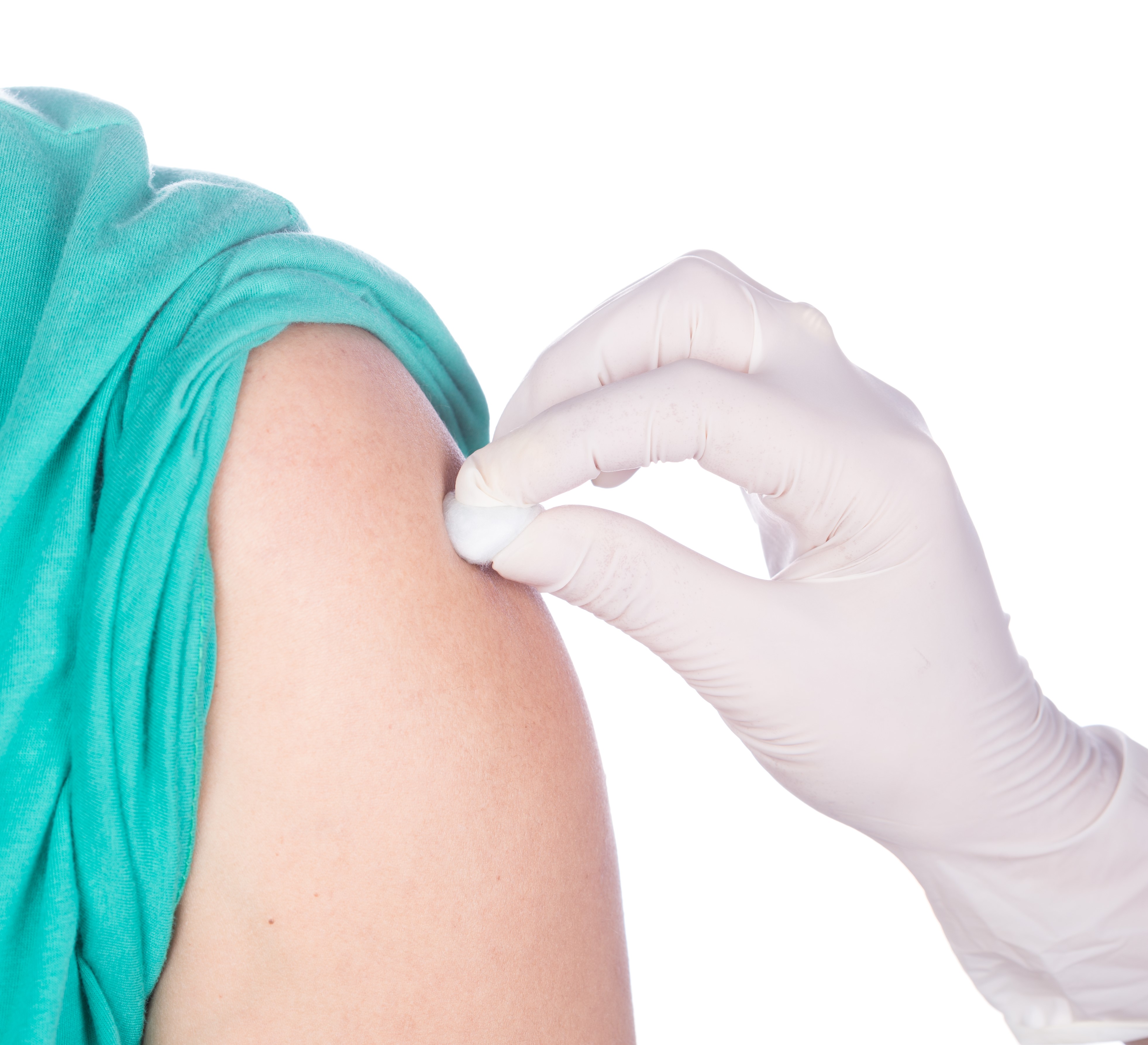 WIPING THE ALCOHOL SWAB AWAY FROM COVID-19 VACCINE PROGRAM
WIPING THE ALCOHOL SWAB AWAY FROM COVID-19 VACCINE PROGRAM
Barry N. Pakes and Anna Taddio | January 25, 2021
Dr. Barry N. Pakes, Program Director, Public Health and Preventive Medicine, Dalla Lana School of Public Health, University of Toronto
Dr. Anna Taddio, Professor, Leslie Dan Faculty of Pharmacy, University of Toronto
It’s a familiar routine for many Canadians, especially children. You roll up your sleeve, the health care provider cleans your upper arm with an alcohol swab, then you wait for what seems like an eternity for the alcohol to dry…then comes the needle! These days, many people are excitedly awaiting their turn to be vaccinated, and not really thinking about the nitty gritty details of the vaccination process. But those of us helping to plan mass vaccination clinics are re-thinking the steps and how we can deliver vaccinations more safely and quickly and with less stress. It just so happens that we can do away with a troublesome, time consuming and the environmentally unfriendly part of the vaccine experience - the alcohol swab swipe and dry.
The alcohol swab has been part of vaccine injections in Canada for decades. In theory, alcohol is supposed to disinfect the skin so that the needle doesn’t introduce bacteria under the skin and cause an infection to develop. But there is no evidence that bacteria enter the skin in this way or that this causes infection. In fact, studies from as early as the 1960’s did not show a benefit of using alcohol before injections. For this reason, the World Health Organization (WHO) advises against using alcohol routinely prior to vaccination Globally it is now common practice, with billions of vaccines administered, and no increases in reported skin infections. Interestingly, while in Canada we continue to routinely clean the skin with alcohol prior to vaccine injections, we don’t for other medicines we inject, like insulin or epinephrine (Epipen).
As we approach the largest vaccination campaign in our history with the roll out of COVID-19 vaccination, it’s time to examine every step of the process, including the seemingly harmless act of alcohol skin cleansing.
Skin cleansing is actually far from a cost-free or harm-free procedure. First, there is the time investment involved – about 90 seconds per injection- which includes the time to open the packet, clean the skin, and wait for the alcohol to dry. This may not seem like much, but it adds up very quickly. If 80% of the population were to be vaccinated, this would amount to almost 1,500,000 hours of health care worker time, with obvious implications on human resource planning. Second, tens of millions of disposable alcohol swabs have to be purchased. Transporting and disposing of these swabs, with a total volume of almost 10000 cubic feet, will impact on vaccination clinic logistics and environmental waste. Third, alcohol can negatively impact an individual’s experience with vaccination. About one-quarter of adults report some degree of fear of needles so the alcohol swab - and even the associated smell - contributes to anticipatory anxiety. Alcohol also causes a stinging sensation when applied directly to open wounds and can be dragged into the skin during injection if an insufficient amount of time is given for it to dry completely. This can increase injection pain. Together, fear and pain are part of a group of side effects called ‘immunization stress related responses’, which if mild, are simply unpleasant experiences for vaccine recipients, but if severe, can lead to dizziness and syncope (fainting), which is potentially dangerous because of the risk of injury from falling. Negative experiences with vaccination may impact peoples’ willingness to get vaccinated in the future. This is especially important for COVID-19 vaccines because two doses are needed for full protection against the disease.
The largest global immunization effort in human history affords us a unique opportunity to examine some of Canada’s long-standing vaccination practices. The science tells us that we don’t need to clean the skin with alcohol swabs before vaccination. Eliminating this costly, and potentially harmful part of the vaccine process, can save money, reduce waste and improve the vaccination experience. There are no documented downsides. Alcohol swabs are an impediment to vaccination. Taking them away is one step that can help us to vaccinate more people faster and finally help bring an end to the pandemic.
This article initially appeared in the Globe and Mail on January 25, 2021.



